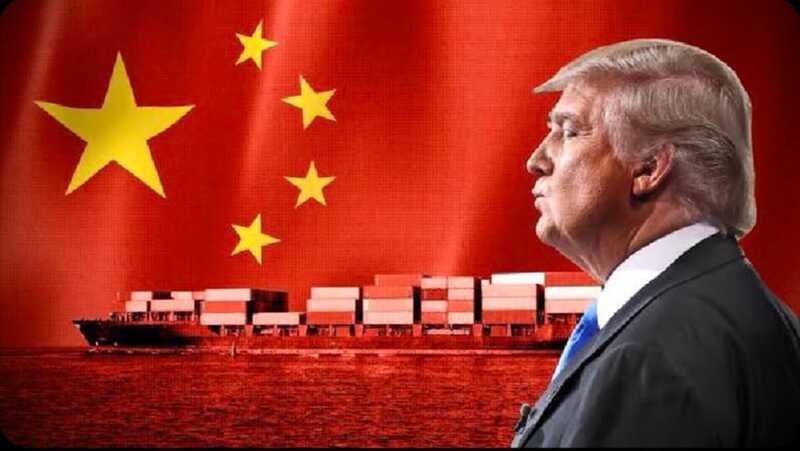 Trump Exempts Tech Gadgets from Tariffs. War Intel via X
Trump Exempts Tech Gadgets from Tariffs. War Intel via X
Tech Investors Rejoice: Trump's Tariff Relief On Tech Products From China Brings Hope For U.S. Electronics
The Trump administration has introduced a significant exemption from its sweeping "reciprocal" tariffs. Smartphones, computers, and other electronic devices will no longer be subject to the steep 125% import tax on Chinese goods. According to U.S. Customs and Border Protection, these exemptions also apply to Trump’s global 10% tariff on most countries, marking the first major exception in his aggressive trade campaign against China.
Impact on U.S. Tech Companies
The decision comes in response to growing concerns from U.S. tech companies about potential price surges for gadgets, many of which are manufactured in China. The exemptions, retroactive to April 5, cover a range of electronic devices and components, including semiconductors, solar panels, and memory storage units.
Analysts React to the Policy Shift
Dan Ives, global head of technology research at Wedbush Securities, expressed optimism about the move. On X (formerly Twitter), he described the decision as a “game-changer” for tech investors. Ives highlighted that the exclusion of smartphones and chips from tariffs represents a significant shift in China-related trade policies, offering relief to major companies like Apple, Nvidia, and Microsoft.
President Trump’s Remarks
While aboard Air Force One on April 12, 2025, President Trump addressed reporters, promising further details about the exemptions in the coming week. He emphasized the financial benefits for the U.S., stating, “As a country, we’re taking in a lot of money.”
White House Clarifications
The White House explained that these exemptions aim to provide U.S. companies with additional time to relocate their manufacturing operations back to the United States. Press Secretary Karoline Leavitt reiterated Trump’s stance, emphasizing the need to reduce dependence on China for essential technologies like semiconductors, smartphones, and laptops. Deputy Chief of Staff for Policy Stephen Miller added that these goods will still face a 20% tariff related to fentanyl concerns.
Potential Consumer Impact
Analysts had previously speculated that iPhone prices in the U.S. could triple if the full impact of tariffs were passed on to consumers. The United States remains a critical market for Apple, accounting for over half of smartphone sales in the previous year. Approximately 80% of iPhones sold in the U.S. are produced in China, with the remainder manufactured in India.
Impact on U.S. Tech Companies
The decision comes in response to growing concerns from U.S. tech companies about potential price surges for gadgets, many of which are manufactured in China. The exemptions, retroactive to April 5, cover a range of electronic devices and components, including semiconductors, solar panels, and memory storage units.
Analysts React to the Policy Shift
Dan Ives, global head of technology research at Wedbush Securities, expressed optimism about the move. On X (formerly Twitter), he described the decision as a “game-changer” for tech investors. Ives highlighted that the exclusion of smartphones and chips from tariffs represents a significant shift in China-related trade policies, offering relief to major companies like Apple, Nvidia, and Microsoft.
President Trump’s Remarks
While aboard Air Force One on April 12, 2025, President Trump addressed reporters, promising further details about the exemptions in the coming week. He emphasized the financial benefits for the U.S., stating, “As a country, we’re taking in a lot of money.”
White House Clarifications
The White House explained that these exemptions aim to provide U.S. companies with additional time to relocate their manufacturing operations back to the United States. Press Secretary Karoline Leavitt reiterated Trump’s stance, emphasizing the need to reduce dependence on China for essential technologies like semiconductors, smartphones, and laptops. Deputy Chief of Staff for Policy Stephen Miller added that these goods will still face a 20% tariff related to fentanyl concerns.
Potential Consumer Impact
Analysts had previously speculated that iPhone prices in the U.S. could triple if the full impact of tariffs were passed on to consumers. The United States remains a critical market for Apple, accounting for over half of smartphone sales in the previous year. Approximately 80% of iPhones sold in the U.S. are produced in China, with the remainder manufactured in India.
Senior Editor: Kenneth Njoroge
Financial Expert/Bsc. Commerce/CPA